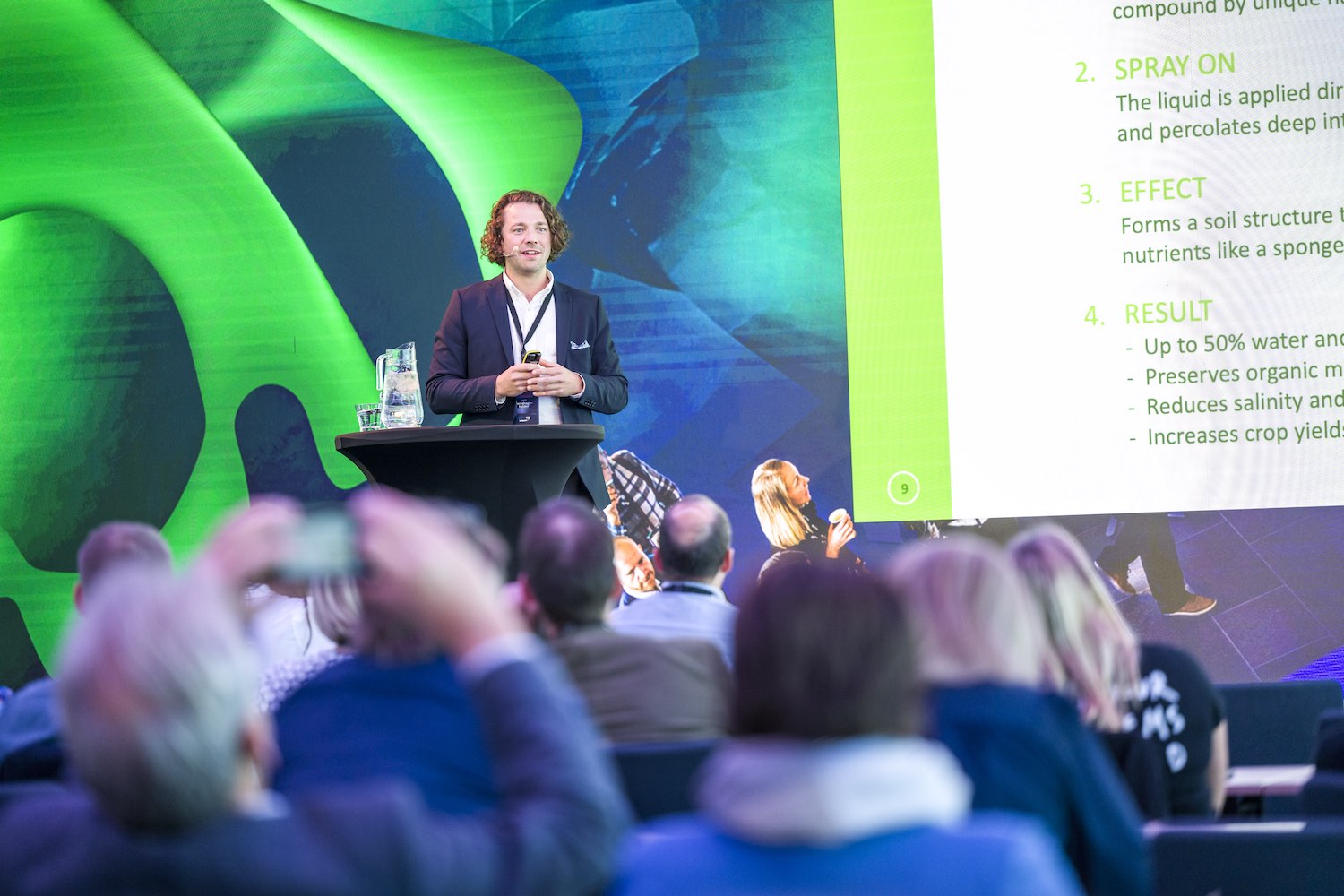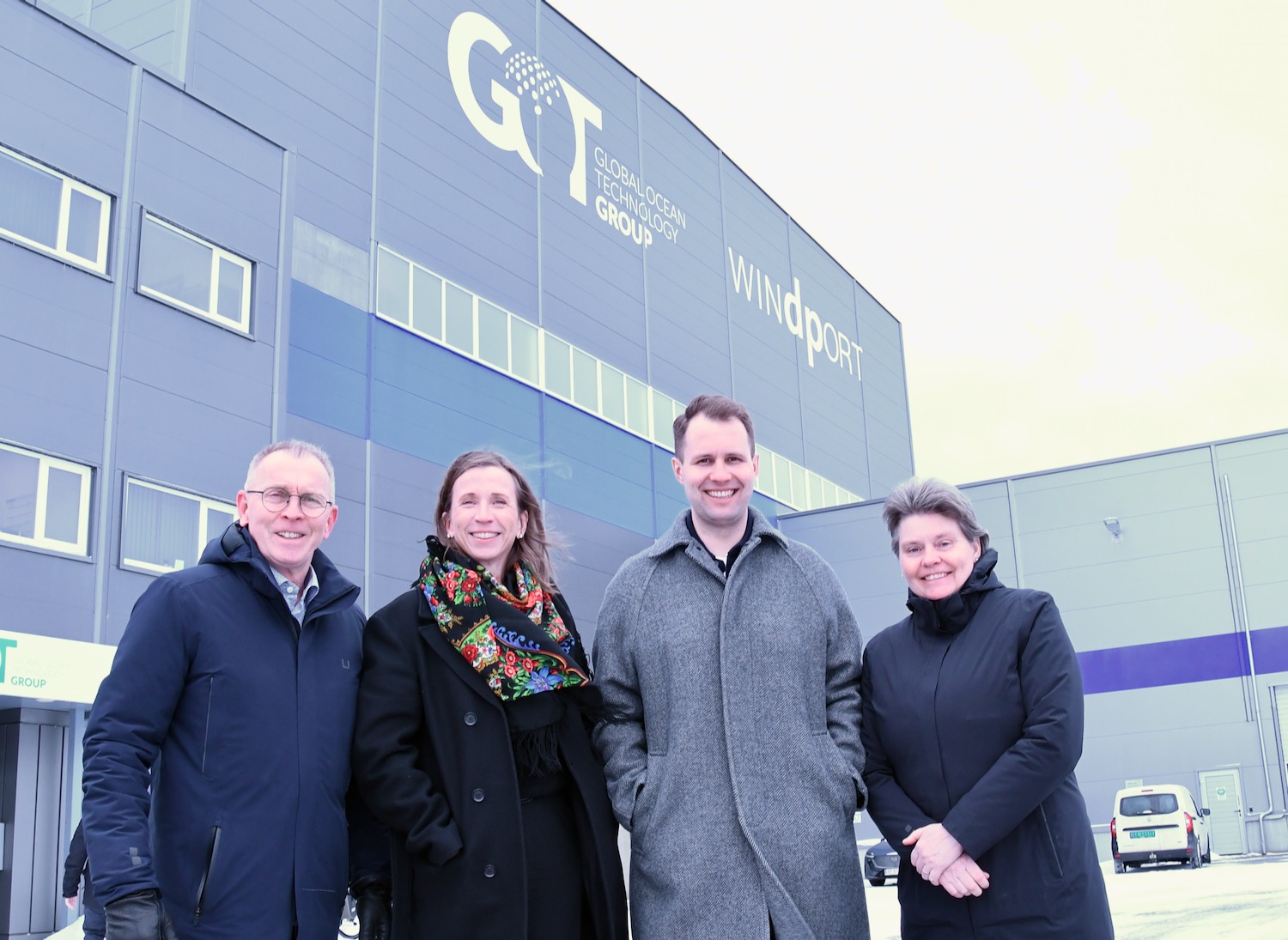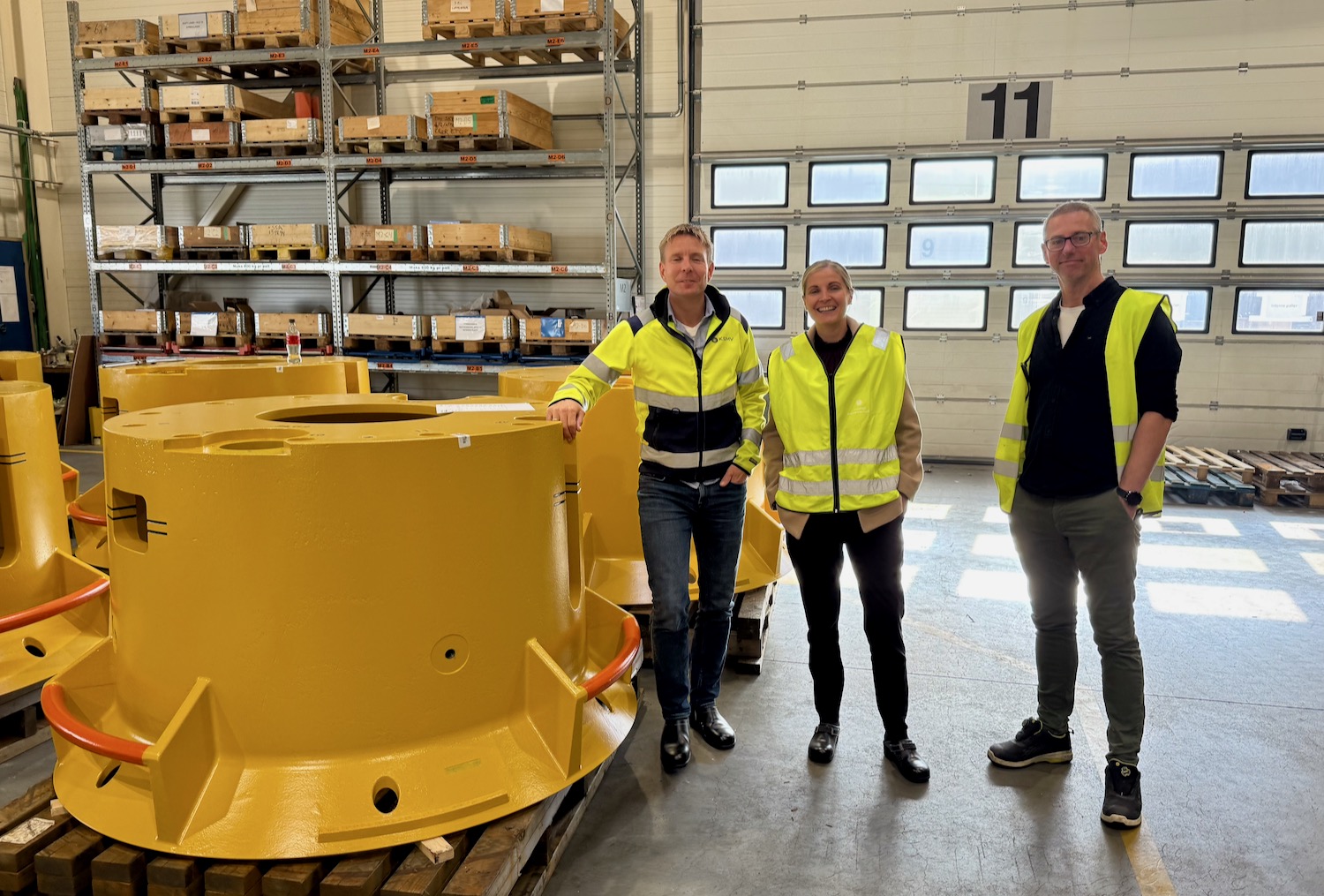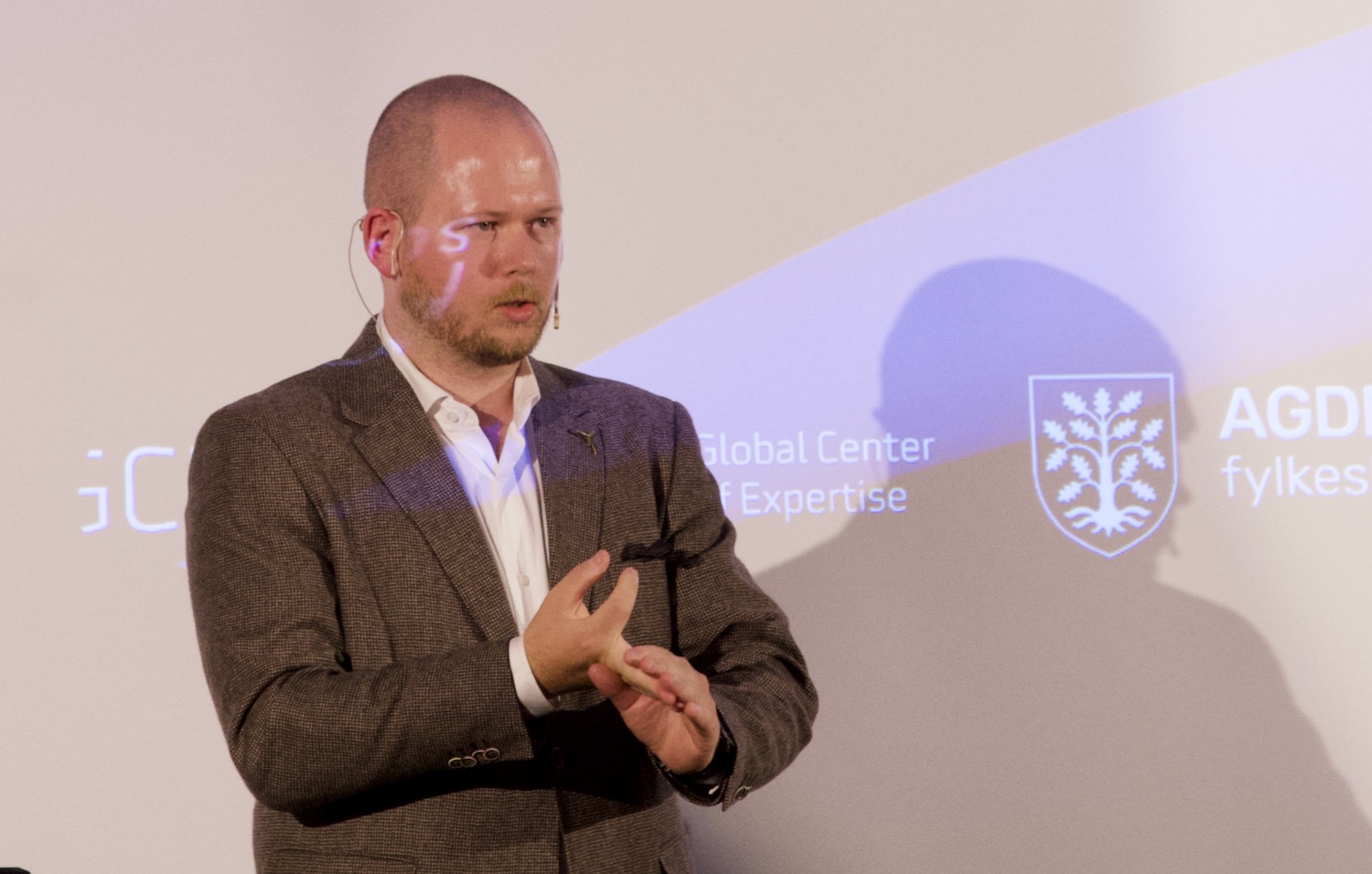“We have found a way to reduce runoff and evaporation of water in sandy soil. By mixing clay and water in a patented process, and entering it into the ground, we enable the soil to retain water, just like a sponge does. Nutrients are also preserved. By retaining water, the soil temperature is stabilized, which provides for more favourable growing conditions and increased crop yields, while preserving water resources by up to 50 per cent”, explains Tor Karlsen, CTO at Desert Control.
Karlsen was one of the main speakers at the Techpoint Global Impact conference in Kristiansand this week. The conference which slogan is “Technology that saved the world”, explored how technology can provide clean energy for everyone, build sustainable infrastructure, and inspire more responsible consumption.
FROM THE UAE TO THE US
According to Karlsen, 30 million acres of fertile land is lost to desertification annually. That corresponds to 2,000 football fields of fertile soil turning to sand every hour. Desert Control’s vision is to make our planet green again.
“We currently have some smaller assignments in the United Arab Emirates, where we are working on the commercialization phase. In parallel, we are validating our technology in the US. We have third-party verification from the International Center for Biosaline Agriculture, and are now working with the University of Arizona. At the same time, we are continuously building our organization”, says Karlsen, who was hired as employee number six at Desert Control in 2021. Today the company’s payroll includes 75 people from 19 different countries.
CLIMATE NUDGING
“Climate nudging” is to encourage climate-friendly decisions. The online grocery retailer Oda, which provides door-to-door delivery services in Norway, has recently tested several ways to nudge their customers. Turi Pettersen, Business Developer at Oda, explains:
“Based on existing research, we have tried different measures to get our customers to eat more green, more healthy, and more climate-friendly. Among the things we have tried is climate labelling of recipes, a climate calculator for food, as well as different ways of presenting the products in our online store,” says Pettersen.

The labelling of recipes has been very successful.
“It is an example of how a small action can have a big impact. What we did was to add a small symbol to highlight climate-friendly recipes. Our numbers show that these recipes have become more popular – seven percent more popular, to be precise. Our customers want to eat more climate-friendly, but they often find it challenging”, says Pettersen.
ENORMOUS POSSIBILITIES
Oda’s findings are supported by Idar Kreutzer, CEO of Finans Norge, an organization for the Norwegian financial industry.
“Consumers must be given the opportunity to make informed decisions. That is why I really like the Oda project. And I am certain that it will have an effect,” said Kreutzer, also a speaker at the Techpoint Global Impact conference.
“As for Desert Control, I think people are becoming more aware of how vulnerable we are, and how important such technology is. I am sure that there will be an increased interest in those kinds of partnerships,” he added.

The transition to a low-emission society creates enormous business opportunities for companies with relevant technologies, products, and services, according to Kreutzer.
“In this context, it is only natural to mention offshore wind. In Norway, we have built an oil and gas industry which incorporates everything from hotels and laundries to suppliers of pumps and the big oil companies. Now we are building a new industry for offshore wind. Norway has an advantage and the Agder region is perhaps among the best in the world in certain areas. We should make sure to utilize this potential,” says Kreutzer.
Global Impact is a full-day event on day two of the Techpoint conference in Kristiansand. Global Impact is presented by GCE NODE, Business Region Kristiansand, The City of Kristiansand, Eyde Cluster, Offshore Norge, the Kristiansand Chamber of Commerce, and Sparebanken Sør.




